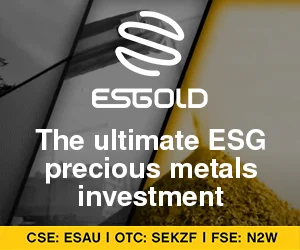In a significant move towards self-sufficiency, a top European Union official recently visited a strategic metals site in central Greece, highlighting the bloc’s commitment to reducing its dependence on external sources for critical minerals. This initiative comes in response to increasing demand for high-tech materials and the geopolitical tensions that have exposed vulnerabilities in global supply chains.
The Visit to Greece’s Gallium Project
Stéphane Séjourné, an executive vice president at the European Commission, toured an aluminum plant that is set to become a key player in the extraction of gallium. This silvery metal, known for its unique properties, is essential in the production of advanced semiconductors, 5G antennas, solar panels, and military radar systems. The Greek venture is one of 47 strategic projects identified by the EU to enhance the production of critical raw materials, a move that is seen as vital for the bloc’s economic and technological independence.
Séjourné’s visit underscores the urgency of the EU’s plans to bolster its domestic capabilities in mineral production. In a post following his tour, he emphasized the importance of the site in Greece, stating, “This site is one of the 47 strategic projects selected to increase our production of critical raw materials and reduce our dependence on third countries.”
The Context of Supply Chain Vulnerabilities
The COVID-19 pandemic, the ongoing war in Ukraine, and recent trade disputes, particularly those involving China, have all contributed to a reevaluation of global supply chains. The EU has recognized that reliance on foreign sources for critical minerals poses a significant risk to its economic stability and security. Notably, China’s export controls on high-tech materials last year have further intensified the urgency for Europe to secure its own supply of essential minerals.
Greece’s Unique Position in the EU’s Strategy
Greece’s gallium project stands out as the only one of its kind among the EU’s strategic initiatives. The project will leverage domestic bauxite sources and integrate gallium extraction with the existing aluminum infrastructure in the country. Operated by Metlen Energy & Metals, the plant is expected to produce up to 50 metric tons of gallium annually by 2027, which could satisfy a substantial portion of Europe’s projected demand.
Development Minister Takis Theodorikakos highlighted the strategic importance of this investment, linking it directly to the autonomy and security of Greece and the broader European continent. This project not only aims to meet the growing demand for gallium but also represents a significant step towards enhancing Greece’s role in the European minerals market.
A Broader Investment in Critical Minerals
The gallium project is part of a larger EU initiative involving a €22.5 billion ($24.2 billion) investment aimed at mining and processing schemes for 17 critical minerals across 13 member states. These minerals are vital for various high-tech applications, including electric vehicles, battery components, lightweight alloys for transportation, and medical devices.
During a presentation of these projects in Brussels, Séjourné expressed the need for public support for domestic mining efforts. He articulated a clear vision for the future, stating, “We do not want to replace our dependency on fossil fuels with a dependency on critical raw materials. Chinese lithium must not become the Russian gas of tomorrow.” This statement reflects the EU’s commitment to diversifying its sources of critical minerals while ensuring that it does not fall into new forms of dependency.
The Path Forward for the EU
The strategic projects are spread across several EU countries, including Belgium, Czech Republic, Estonia, Finland, France, Germany, Greece, Italy, Poland, Portugal, Romania, Spain, and Sweden. The range of materials covered includes aluminum, boron, cobalt, copper, gallium, germanium, graphite, lithium, magnesium, manganese, nickel, platinum group metals, rare earth elements, and tungsten.
As Europe embarks on this ambitious journey towards mineral self-sufficiency, the success of these initiatives will depend on effective collaboration among member states, investment in sustainable mining practices, and the ability to garner public support for domestic mining operations. The stakes are high, and the outcome will significantly influence the EU’s economic resilience and technological advancement in the years to come.
In conclusion, the EU’s strategic focus on boosting domestic production of critical minerals, exemplified by Greece’s gallium project, marks a pivotal shift in the bloc’s approach to resource management and geopolitical strategy. As the demand for high-tech materials continues to rise, Europe is poised to redefine its role in the global minerals market, ensuring a more secure and autonomous future.




